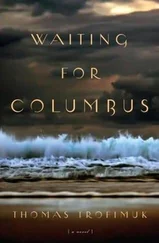Gulf of Marseille
Change of drivers on top of the windy mountain: Elisabeth’s absolutely unambiguous kiss when we came out of the station on the summit. In the writers’ small house we’d had to sleep in a walk-through room, the female dramatist’s two small children had jumped on our blanket in the morning (sex was unthinkable). I remember that Elisabeth on the hairpin turns on the lower third of the mountain pulled her skirt up and her underpants to the side. I want to come now, she said (she spoke of her bestial lust, I had to concentrate on gorges and sheep). Both of us stared at the narrow, winding road, Elisabeth came with her eyes on inwardly directed emptiness, I concentrated simultaneously on my finger on her pussy and the emergency brake of the Renault. A cyclist overtook us at the decisive moment, Elisabeth had stepped too abruptly on the brake (we laughed, we risked a rear-end collision together). When we reached the beach near Martigues, we parked between the refineries on the left and an industrial port on the right. Artificial palms, fish stalls abandoned in the midday heat, an old man was holding a kite in the air for his grandson (light blue water, light blue sky). Elisabeth and I hopped along the brightly shining stones of the jetty, we bought deep-fried fish and cold soda, we sat in the spraying groundswell. I remember exactly how the rust-red of the refineries was reflected in Elisabeth’s sunglasses as she opened a can of soda and told me with a laugh that she wanted to be with me always, I was so wonderfully practical, extraordinarily practical, especially when traveling (I had to laugh at that).
between the books
I lack 3,000 words for Svensson’s strangeness. Right now Harnisch must be at the most expensive restaurant in Châtenay-Malabry thinking about morality and urine (his return trip directly after the press conference of the anti-doping laboratory; but no one knows when that will be), Elisabeth will be doing a little more work at home. Where to begin? I look at Svensson’s books standing on the desk, I wonder why his shelves are almost empty. Did Svensson throw the books in the garbage bags, is he disposing of his library? Is that where the smoke is coming from? The remaining books are standing there as if they were arranged for me (as if I were supposed to read Svensson’s thoughts). For example: Uwe Johnson’s Jahrestage. In front of me stands only volume 2 of the first edition, in our bedroom in Hamburg a red and black collected edition is lying on the floor, read and flagged, the most famous quote on the spine (the cat called memory). Svensson’s books, my books, Elisabeth’s books. For example: Max Frisch’s Montauk . On our honeymoon trip to Kolberg I talked to Elisabeth about it often enough (and she to me). We had only one weekend in the summer and wanted to get this formality over with. Elisabeth reminded me of Lynn, the Baltic Sea region of Frisch’s Long Island. The destination (Kolberg) was her idea, she wanted to bring together her past and her future, she said. I wanted to see her without everything else (without husband, without work, without St. Michaelis in the background, without St. Petri). Continuing along Svensson’s thinned-out shelf: Theodore Dreiser’s Sister Carrie I’ve never read, Svensson’s copy torn and sticky, full of underlined passages and margin notes, on the flyleaf a phone number (646-299-1036 Kiki Kaufman!).
Manteli,
You’re still here! This house, these pictures, this garbage. All this is not my fault. Svensson talks melancholy nonsense: he has the world in his rearview mirror, his heart is a book. These old stories, these fictions. This nostalgia! Poppycock! You write all the time, Manteli. I believe: there’s nothing true about all this and nothing lasts forever, books, pictures, scribblings. There are more important things. There are things that are worth it. If you stay, I’ll show them to you.
Kauniita unia,
Tuuli
How do I get out of here?
Tuuli wants to show me things. I’m sitting at the desk and reading the message again and again: things that are worth it? Tuuli was standing next to me in a bikini as I was sleeping, she tore a page out of my notebook and wrote to me. Tuuli seems to know what she’s talking about (in that she reminds me of Elisabeth). She must know what the important things are: not words and notes, not the old stories and Svensson’s fictions, not pictures. The passing thought that she’s not here because of Svensson, not because of the boy and not because of Felix. Maybe Tuuli’s here because of me, maybe we were supposed to meet. Maybe all this is about fate (making connections where there are no connections). I remain seated at the desk. What holds me back I don’t know. Kauniita unia means “sweet dreams,” I remember that from my time with the second Carolina. Tomorrow I have to leave, I think, but then: I could stay.
Elisabeth and Daniel
The question of what’s worth it and what’s special? Elisabeth and I read each other like city maps (we moved into the back courtyards of our city). We exchanged the isolated tables of the Gruner + Jahr cafeteria for late-night bars, we slept together in my apartment (sometimes in hotels). But that’s not right. I can’t remember whether snow fell in the winter of 2002 and whether it remained on the ground, what was in the newspapers at that time, whether I had a cold. I must have sat in the office all day, leafing through proofs and waiting for evening. Elisabeth was still married, her husband worked for the publishing company too, we should keep that in mind, she said. Sometimes I saw her for days at a time only in a completely official capacity at tables full of journalists (she requested those days). Elisabeth is a pragmatist. But that’s not right either: I ignored the thought of her husband. For a few months we actually lived as if it were just the two of us, everything else was of only superficial concern. At her desk with a view of St. Michaelis Elisabeth wrote easily digestible but honest articles (strong women, good-looking men, new movie releases), she called this arrangement a “quite acceptable backdrop against which she could perform her life,” I compiled glossaries for GEOkompakt (“The Wonder of Humanity”) and spent mornings in the Museum of Ethnology. We had no mission outside of ourselves (I found her red hair in the corners of my apartment). From our words and thoughts we designed streets and moved more purposefully, maybe more meaningfully, in them (she showed me the remote map quadrants), we used our bodies (I went beyond my boundaries).
Who exactly is Daniel Mandelkern?
In my head this image remains: Elisabeth and I in bed in the Bismarckstrasse apartment, yogurt jars and red wine bottles, on the floor next to us on the right and left our books, on my side:
The Water-Method Man by John Irving
Montauk by Max Frisch
The Ghost Writer by Philip Roth
A Diary in the Strictest Sense of the Term by Bronislaw Malinowski.
Auberge la Fontaine
I first heard the name Dirk Svensson at dinner with Elisabeth’s friends in Venasque (Auberge la Fontaine). Elisabeth and I were again spending a few days in Provence, we were celebrating her thirty-sixth birthday (April 1). We return again and again to our places, we go to the same restaurants and bars, we stay in the same rooms (Brittany, Provence, the Baltic Sea). This time we flew to Marseille and rented a car there (the Renault could no longer handle long distances, said Elisabeth, even though I’d love to sit next to you again for days, Daniel). In the middle of the small restaurant stood a grand piano, around it four tables and only a few audience members. Before dinner we drank and listened to Schubert’s four-hand military marches, then Poulenc (we soaked thoughts in wine like plums). The pianist looked like Woody Allen, his accompanist wore a black evening dress (her heavy body from behind an upside-down heart). Elisabeth didn’t have to introduce me, her friends knew me: the dramatist, the writer (we already had a shared story). At the next table an old woman played along with every single note on the wooden table. They were here to think, said the dramatist, without all the networking and the usual milieu. I salted my soup, whereupon the writer stood up and with an appropriate degree of conspicuousness threw the saltshaker out the window into the village fountain. It was about the genuine gaze, he said, raising his glass: to the natural beauty of meals and women (Elisabeth’s French laugh)! At some point between foie gras and cheese tasting (plateau de fromage), he leaned over to me and asked whether I’d heard of Dirk Svensson, now that was an author a journalist like me should write an article about. A strange man, Mandelkern! Elisabeth nodded, I laughed too.
Читать дальше












